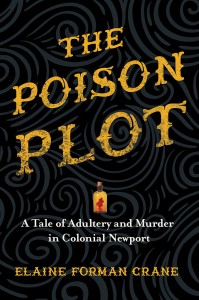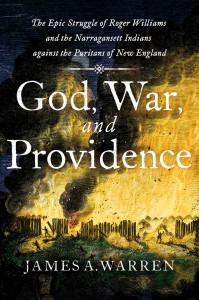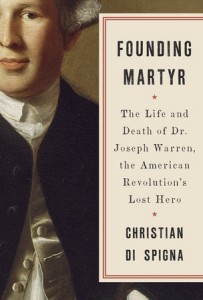You’re not limited to romancey, vampirey, murdery fluff when you head to the beach this summer. Pick up one of these non-fiction local tales instead and getcher learn on, you dummy! If for no other reason, do it so you’ll be more interesting at parties.
The Poison Plot: A Tale of Adultery and Murder in Colonial Newport by Elaine Forman Crane (272 pages, Cornell University Press, published May 15, 2018).

by Elaine Forman Crane
Crane is a “micro-historian” who illuminates the larger issues and society of the past by telling the story of small, particularly unusual incidents that expose aspects otherwise kept hidden. In 1720s Newport, RI, 21-year-old Mary married Benedict Arnold, a merchant barrel maker two decades older than she was. By 1738, she was widely known to carry on extramarital affairs, possibly in an unsuccessful effort to provoke him to file for divorce, an option not then open to women, but that didn’t happen. When he got sick, a doctor diagnosed the cause as poison, leading to a judicial inquiry that meticulously compiled evidence from another doctor who treated her and her lover for gonorrhea and from druggists who sold her various components that could be used as poison, eventually accumulating about 100 pages of manuscript records that have been preserved. Believing himself poisoned, he finally filed for divorce. But was he? Adding to the uncertainty, she was illiterate and chose to remain silent about the allegations, so we never hear her side of the story, leaving us to infer it from third parties.
Crane’s earlier quasi-companion book, Killed Strangely: The Death of Rebecca Cornell (253 pages, Cornell University Press, 2002), relates another case of alleged murder in 1673 Portsmouth, RI, when a wealthy, elderly matriarch was found burned to death near the fireplace, for which her adult son in his 40s was accused – and the hearsay testimony of ghosts was then admissible in court. The contrast is striking: only a few decades later, the court system in the Arnold case was struggling to evolve rational if not exactly scientific standards of evidence, long before any sort of objective chemical test existed to detect poison.
If you like this: Witches, Wife Beaters, and Whores: Common Law and Common Folk in Early America by Elaine Forman Crane (272 pages, Cornell University Press, 2012) and The Witches: Salem, 1692 by Stacy Schiff (512 pages, Little, Brown and Company, 2015).
God, War, and Providence: The Epic Struggle of Roger Williams and the Narragansett Indians against the Puritans of New England by James A. Warren (304 pages, Scribner, published June 12, 2018).

by James A. Warren
From its inception in 1636, Rhode Island was a weird place, defying the mindset of the Puritans who settled Massachusetts and founded by a series of refugees fleeing from stultifying obsession with enforced unity of religious views. When Roger Williams settled Providence by stepping off his boat in what is now Fox Point onto a rock (that two centuries later would mistakenly be blown to bits by city workers sent to preserve it) and was supposedly greeted by Native Americans with the mixed English-Algonkian question “What cheer, netop?” that now forms the basis of the city’s motto, he established the first community in the world built on the assumption that freedom of religion and tolerance for dissenting views would strengthen rather than weaken the social fabric.
Williams was trained as a lawyer, a student of the legendary British judge Sir Edward Coke, and this led him to conclude the conduct of the colonists was unlawful and unfair. What finally forced Williams to leave Massachusetts were charges of heresy and sedition for publishing a broadside arguing that it was theft to take land from the indigenous Native Americans without payment and consent. Williams was also the first in the New World to organize an effort to outlaw slavery.
The British colonists looked back helplessly with increasing alarm as the home country descended into civil war in the 1640s and the interregnum of the 1650s, and the neighboring settlements in Massachusetts and Connecticut saw the Rhode Island settlers as anarchist heretics and the native tribes as recalcitrant heathen savages. As the other colonies subjugated and Christianized the tribes, Williams and the Narragansetts formed a military and social alliance that well served their mutual goal of remaining independent: “For their part, the Puritan authorities viewed Williams’ Rhode Island as a cesspool of religious and political radicalism, and the stubborn Narragansetts as both a serious security risk and an obstacle to Puritan expansion.” This book is the story of how that unique confluence happened.
If Carl von Clausewitz was correct that war is the continuation of policy with other means, military historian Warren has finally written a book that emphasizes the policy rather than the war. His earlier Giap: The General Who Defeated America in Vietnam (256 pages, St. Martin’s Press, 2013) is a remarkable, contrarian assessment of the history teacher turned soldier who became the most surprisingly successful strategic general since George Washington, crediting Giap with out-thinking both the French and the Americans in two wars and objecting to the conventional view that Giap was merely the lucky beneficiary of enemy mistakes and incompetence.
If you like this: American Jezebel: The Uncommon Life of Anne Hutchinson, the Woman Who Defied the Puritans by Eve LaPlante (312 pages, Harper, 2005) and The Name of War: King Philip’s War and the Origins of American Identity by Jill Lepore (337 pages, Knopf, 1998).
Founding Martyr: The Life and Death of Dr. Joseph Warren, the American Revolution’s Lost Hero by Christian Di Spigna (336 pages, Crown, forthcoming August 14, 2018).

by Christian Di Spigna
Killed in action at Bunker Hill early in the American Revolution at age 34, Bostonian Joseph Warren finally receives the biography he deserves as one of the key leaders for the decade leading up to the shooting war, along with Samuel Adams and Paul Revere. Indeed, Warren was the man who sent Revere and William Dawes on their midnight rides. Warren’s biography shows that the American Revolution did not just start in 1775.
If you like this: Paul Revere’s Ride by David Hackett Fischer (464 pages, Oxford University Press, 1994).
Not Local, but Recommended
Fascism: A Warning by Madeleine Albright (304 pages, Harper, published April 10, 2018).
Bill Clinton’s secretary of state who as a child twice escaped oppression, once from Nazi Germany and once from Soviet communists as they took over her native Czechoslovakia, warns that the world is backsliding away from ideals of freedom and democracy traditionally supported by the United States and is embracing authoritarianism.
The Road to Unfreedom: Russia, Europe, America by Timothy Snyder (368 pages, Tim Duggan, published April 3, 2018).
America’s most original historical thinker about Nazi Germany – his brilliant Bloodlands: Europe Between Hitler and Stalin (560 pages, Basic Books, 2010) won the Hannah Arendt Prize – ties together current populist trends, including the unchecked annexation of Ukraine territory by Russia under Vladimir Putin, Brexit, and the American presidency of Donald Trump, to argue that Western democratic institutions are more precarious than commonly thought. Something of an expanded follow-on from his On Tyranny: Twenty Lessons from the Twentieth Century (128 pages, Tim Duggan, 2017), itself expanded from a Facebook post a week after the 2016 election that began, “Americans are no wiser than the Europeans who saw democracy yield to fascism, Nazism, or communism. Our one advantage is that we might learn from their experience. Now is a good time to do so.”
Off the Charts: The Hidden Lives and Lessons of American Child Prodigies by Ann Hulbert (400 pages, Knopf, published January 9, 2018).
Fifteen cases studies of child prodigies provide the framework for surveying how they have been studied and prodded over the past century, including the longitudinal Terman’s Study of the Gifted begun in 1921 and Study of Mathematically Precocious Youth begun in 1971. What risks do these children face and what help do they need? From the author of Raising America: Experts, Parents, and a Century of Advice About Children (464 pages, Knopf, 2003).
(((Semitism))): Being Jewish in America in the Age of Trump by Jonathan Weisman (256 pages, St. Martin’s Press, published March 20, 2018).
The deputy Washington editor of The New York Times, an assimilated Jew born and raised in Atlanta, is shocked to discover that a vocal minority of alt-right Trump supporters feel unleashed on social media to attack him and other Jewish journalists, surrounding their Twitter handles with “echoes” – triple parentheses ignored by search engines – to “dog-whistle” that they are Jewish and hold them up to ridicule.